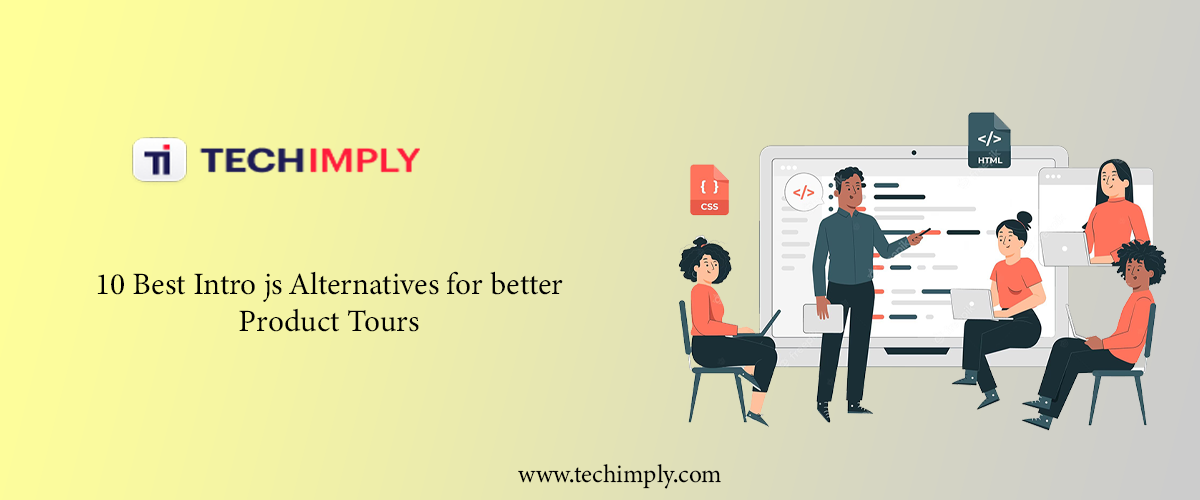In the dynamic world of the restaurant industry, one thing remains constant and non-negotiable: food safety. As a restaurant manager, you are well aware of the critical role food safety plays in ensuring the well-being of your customers and the success of your establishment.
However, managing food safety effectively across multiple locations can be a daunting task, often leading to challenges in maintaining centralization and consistency in your processes.
Fear not, for there is a cutting-edge solution that will revolutionize the way you approach food safety management - Xenia. Imagine a comprehensive platform that unifies your daily operations, facilities, and compliance, empowering you to take control like never before. Xenia is the answer to your struggles, offering the tools and capabilities to streamline your food safety practices, enhance maintenance work orders, and ensure compliance with food safety regulations.
In this article, we will explore the key aspects of food safety management that every restaurant manager should be familiar with. We'll delve into the principles of HACCP and the significance of the FSMA in safeguarding your customers' health. Moreover, we will address the pressing need for centralization and consistency in your food safety efforts and how Xenia emerges as the ultimate solution to this challenge.
What Is Food Safety Management?
Food safety management is the cornerstone of any successful restaurant operation. It encompasses a systematic approach to identifying, evaluating, and controlling potential hazards that could compromise the safety and quality of the food served to customers. Two key pillars of an effective food safety management system are HACCP (Hazard Analysis and Critical Control Points) and the FSMA (Food Safety Modernization Act).
Understanding these concepts is crucial for restaurant managers thorugh restaurant management software seeking to centralize and maintain consistency in their food safety practices. Maximize your restaurant's potential with the help of a food marketing agency. Let them handle restaurant management and elevate your client base, ultimately boosting your revenue.
Hazard Analysis and Critical Control Points (HACCP)
HACCP is a science-based system designed to identify and control potential hazards throughout the food production and handling process. Its primary focus is on preventing foodborne illnesses rather than relying solely on end-product inspection. By applying HACCP principles, restaurant managers can establish critical control points, set critical limits, and implement corrective actions to maintain food safety.
The 7 principles of HACCP are as follows:
- Conduct a Hazard Analysis: Identify potential biological, chemical, and physical hazards in the food production process.
- Determine Critical Control Points (CCPs): Identify the points in the process where control is essential to prevent, eliminate, or reduce hazards to safe levels.
- Establish Critical Limits: Set maximum or minimum values for each CCP to ensure food safety.
- Monitor CCPs: Regularly assess and record data to ensure that CCPs are under control.
- Establish Corrective Actions: Define actions to be taken when a deviation from a critical limit occurs.
- Verification: Periodically review and verify the effectiveness of the HACCP system.
- Record-Keeping: Maintain records to demonstrate the effectiveness of the HACCP plan.
Implementing HACCP principles across your restaurant's operations will instill confidence in both your team and your customers, ensuring that every dish served adheres to stringent food safety standards.
Food Safety Modernization Act (FSMA)
The Food Safety Modernization Act (FSMA) is a significant reform in the United States' food safety laws, aimed at shifting the focus from responding to foodborne illnesses to preventing them. Signed into law in 2011, the FSMA places greater responsibility on food establishments to implement preventive measures, conduct regular inspections, and comply with new safety standards.
Key elements of the FSMA include:
- Preventive Controls for Human Food: This rule mandates that food delivery facilities implement preventive controls to identify potential hazards, establish controls, monitor their effectiveness, and take corrective actions as needed.
- Foreign Supplier Verification Program (FSVP): The FSVP requires food importers to verify that their foreign suppliers meet U.S. food safety standards.
- Produce Safety Rule: This rule establishes science-based standards for the safe growing, harvesting, packing, and holding of produce, with the aim of reducing foodborne illnesses related to fresh produce.
- Sanitary Transportation Rule: The rule sets requirements for the transportation of food to prevent contamination during transit.
- Third-Party Certification: The FSMA allows for the accreditation of third-party auditors to conduct food safety audits and certify food facilities' compliance.
Adhering to the FSMA's regulations is not only essential for the safety of your customers but also critical for avoiding potential legal and reputational risks for your restaurant.
The Need For Centralization and Consistency In Food Safety Management
As a restaurant manager overseeing multiple locations, maintaining consistent food safety practices can be a daunting challenge. Different teams, varied processes, and decentralized record-keeping can lead to discrepancies in safety standards. However, centralizing food safety management ensures that all locations adhere to the same rigorous protocols, minimizing the risk of foodborne incidents and non-compliance.
The Struggles Faced By Restaurant Managers
As a restaurant manager responsible for overseeing multiple locations, maintaining consistent food safety practices can be an uphill battle. Each restaurant may have its own team of staff, different operating procedures, and unique challenges. This decentralized approach to food safety management can lead to inconsistencies in how safety protocols are implemented and monitored.
Some common struggles faced by restaurant managers include:
-
Disparate Record-Keeping: With each location maintaining its own records, it becomes difficult to track and compare food safety data across the entire restaurant chain. This lack of centralization hampers the ability to identify trends or patterns that could indicate potential risks or areas for improvement.
-
Inconsistent Training: When food safety training is conducted at the individual location level, there may be variations in the quality and content of the training provided. This can result in differences in how staff members handle food, monitor temperatures, or follow critical control points.
-
Non-Uniform Procedures: Standard operating procedures (SOPs) may vary between locations, leading to inconsistent practices that could potentially compromise food safety. Different interpretations of food safety guidelines can also occur, leading to confusion and potential hazards.
-
Compliance Challenges: Maintaining compliance with food safety regulations across multiple locations requires careful coordination and monitoring. It becomes increasingly difficult to demonstrate consistent adherence to regulations without a centralized system in place.
What Are The Benefits of Centralizing Food Safety Management?
Centralizing food safety management brings numerous advantages, making it a game-changer for restaurant managers seeking improved efficiency and compliance.
-
Consistency Across Locations:
By centralizing food safety management, restaurant managers can ensure that uniform procedures, protocols, and training are implemented across all their establishments. This consistency helps minimize potential risks and ensures that every customer receives the same high standard of food safety, regardless of the location they visit.
-
Streamlined Data Analysis:
A centralized system allows for easy data collection and analysis. Managers can access real-time data from all locations, enabling them to identify trends, spot issues early, and implement corrective actions promptly. The ability to analyze data holistically empowers managers to make data-driven decisions and improve overall food safety standards.
-
Efficient Training and Communication:
A centralized platform facilitates the efficient dissemination of training materials, updated SOPs, and important communications regarding food safety. This ensures that all staff members are up to date with the latest practices, reducing the likelihood of errors or misinterpretations.
-
Improved Compliance and Reporting:
With all food safety records stored in one place, compliance reporting becomes seamless. Managers can easily generate comprehensive reports and demonstrate adherence to regulations during audits or inspections. This not only saves time but also instills confidence in regulatory bodies and customers alike.
-
Quick Response to Issues:
Centralized food safety management allows managers to identify and address issues promptly. If a problem is detected in one location, managers can quickly communicate and implement corrective actions across all establishments, preventing the same issue from recurring elsewhere.
-
Ensuring Top-Notch Food Safety Standards
Xenia, the all-in-one food safety management solution, empowers restaurant managers to uphold top-notch food safety standards with ease. By leveraging Xenia's powerful capabilities, you can ensure accurate temperature logs, consistent adherence to standard operating procedures (SOPs), and timely resolution of any food safety concerns. Let's explore how Xenia revolutionizes food safety practices to safeguard the well-being of your customers and the success of your restaurant chain.
-
Maintain Accurate Food Temperature Logs
Maintaining proper food temperatures is paramount to preserving food quality and safety. Xenia simplifies this critical aspect by providing user-friendly tools to track and record food temperature logs accurately. Whether it's monitoring storage temperatures in fridges and freezers or ensuring the correct cooking temperatures for various food items, Xenia keeps your team informed and compliant.
By implementing automated temperature monitoring with Xenia's Bluetooth technology for freezers, fridges, and temperature probes, you can stay ahead of any potential temperature fluctuations that could compromise food quality. Real-time temperature alerts allow your team to take immediate action to prevent spoilage or bacterial growth, maintaining the freshness and safety of your ingredients.
-
Implementing Standard Operating Procedures (SOPs) and Checklists
Consistency in food safety practices is a hallmark of successful restaurant chains, and Xenia helps you achieve just that. With Xenia's user-friendly interface, you can digitize and standardize your SOPs and checklists, ensuring that every location follows the same best practices in food preparation, handling, and storage.
Through Xenia, you can easily distribute updated SOPs and checklists to all staff members, reducing the chances of misinterpretations or deviations. This unified approach to food safety empowers your team to perform their tasks confidently and consistently, mitigating potential hazards and enhancing overall food safety compliance.
-
Conducting Food Safety Inspections Regularly
Regular food safety inspections are a proactive measure to prevent any compromise on the quality and safety of the food served in your establishments. Xenia facilitates the scheduling and execution of food safety inspections seamlessly. With its mobile inspection feature, your team can conduct inspections efficiently, attach images as evidence, and communicate any concerns in real-time through in-task chats.
By setting up recurring inspection schedules, you can ensure that critical food safety aspects, such as proper hygiene, cross-contamination prevention, and sanitation, are consistently monitored and maintained across all locations. The insights gained from these inspections empower you to identify areas for improvement, implement corrective actions, and continuously elevate your food safety practices.
-
Managing Corrective Work Orders Efficiently
In the event of any food safety concerns or issues identified during inspections, prompt action is essential to safeguard your customers' well-being. Xenia streamlines the process of managing corrective work orders, ensuring that concerns are addressed without delay.
With Xenia's platform, you can swiftly create and assign corrective work orders to the responsible staff members, notifying them of the required actions. Monitoring the progress of these orders becomes effortless, allowing you to ensure that all necessary corrections are made promptly and thoroughly. By taking proactive measures, you demonstrate your commitment to food safety, reinforcing trust and confidence among your customers.
-
Analyzing Data and Exporting Reports
Data-driven insights are instrumental in fine-tuning food safety practices and optimizing restaurant operations. Xenia empowers restaurant managers with advanced analytics tools to analyze data collected from temperature logs, inspections, and maintenance work orders. By harnessing this data, you gain valuable insights into the performance of your food safety protocols and the overall health of your restaurant chain.
With Xenia's intuitive analytics dashboard, you can identify trends, patterns, and potential areas of improvement. Analyzing temperature logs over time allows you to ensure consistent adherence to proper storage and cooking temperatures, reducing the risk of foodborne illnesses. By tracking inspection outcomes, you can pinpoint recurring issues, address them proactively, and enhance your preventive measures.
Xenia's customizable reporting feature enables you to generate comprehensive reports tailored to your specific needs. These reports offer a snapshot of your food safety compliance, maintenance efficiency, and overall performance across locations. Whether you need data for internal review or to showcase compliance during regulatory inspections, Xenia provides exportable reports that streamline the process and save valuable time.
Get Started Today!
Xenia offers a comprehensive solution that unifies daily operations, facilities, and compliance, streamlining every aspect of your food safety management. From maintenance work orders to temperature monitoring, SOP implementation to regular inspections, and efficient corrective actions, Xenia empowers you with the tools to elevate food safety standards and delight your customers.
Ready to experience the transformative power of Xenia for yourself? Start your free trial today and witness firsthand how this innovative solution can elevate your food safety practices, streamline operations, and ensure consistent quality that keeps customers coming back for more.
Take the first step towards a future of success, efficiency, and confidence in your restaurant's food safety management - all with Xenia as your trusted partner. Don't wait; unlock the full potential of your restaurant chain with Xenia's free trial and embark on a journey towards a safer, more compliant, and customer-centric dining experience.

.png)




